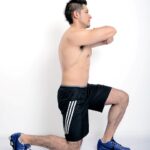As athletes age, their bodies undergo various changes that can impact their running performance and overall health. However, with the right approach and advice from experts, aging athletes can continue to enjoy running and stay active for years to come. In a recent article by Runner’s World, experts shared valuable running advice specifically tailored for aging athletes. Let’s delve into some of the key tips and insights provided by these experts.
One of the most important pieces of advice for aging athletes is to listen to their bodies and adjust their training accordingly. As we age, our bodies may take longer to recover from intense workouts, and we may be more prone to injuries. It’s essential for aging athletes to pay attention to any signs of pain or discomfort and to modify their training plan to prevent overtraining and reduce the risk of injury.
Another crucial aspect of running for aging athletes is the importance of incorporating strength training into their routine. Strength training can help improve muscle mass, bone density, and overall strength, which are all essential for maintaining performance and preventing injuries as we age. Experts recommend focusing on exercises that target the core, hips, and legs to improve stability and support proper running form.
In addition to strength training, flexibility and mobility exercises are also vital for aging athletes. As we age, our muscles and joints may become stiffer, leading to a higher risk of injury. Incorporating stretching and mobility exercises into your routine can help improve flexibility, reduce muscle tightness, and enhance range of motion, all of which are crucial for maintaining optimal running performance.
Nutrition is another key aspect of running that aging athletes should pay close attention to. As we age, our metabolism may slow down, and our nutritional needs may change. Experts recommend focusing on a balanced diet rich in whole foods, lean proteins, healthy fats, and complex carbohydrates to fuel your runs and support overall health. Hydration is also essential, especially for aging athletes, as dehydration can impact performance and recovery.
Lastly, experts emphasize the importance of rest and recovery for aging athletes. Getting an adequate amount of sleep, taking rest days, and incorporating active recovery activities such as yoga or swimming can help prevent burnout, reduce the risk of injury, and promote overall well-being. It’s essential for aging athletes to prioritize self-care and listen to their bodies to ensure they can continue running for years to come.
In conclusion, aging athletes can continue to enjoy running and stay active by following the advice and tips provided by experts. By listening to their bodies, incorporating strength training, focusing on flexibility and mobility, paying attention to nutrition, and prioritizing rest and recovery, aging athletes can maintain their running performance and overall health as they age. With the right approach and mindset, aging athletes can continue to pursue their passion for running and lead a healthy and active lifestyle.















